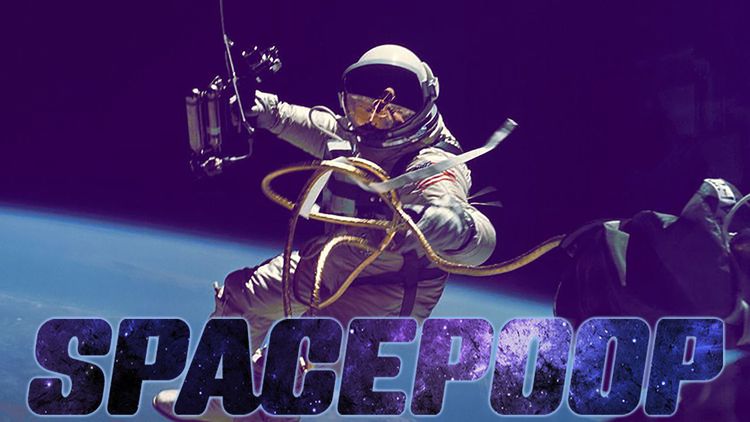How to Poop in Space: NASA Unveils Winners of Space Poop Challenge

Turns out, space poop is a problem that puzzles thousands of people. After NASA asked for solutions to let astronauts urinate and defecate inside a spacesuit for up to six days, more than 5,000 entries (representing 20,000 people) answered the call.
The winner of the $15,000 Space Poop Challenge prize was Thatcher Cardon, for a solution called "MACES Perineal Access & Toileting System (M-PATS)." Details on the system were not immediately available.
Cardon explained how he devised the idea for the system.
"I was really interested in the problem, though, and spent some time lying down, eyes closed, just visualizing different solutions and modelling them mentally," Cardon, a colonel and commander of the 47th Medical Group at Laughlin Air Force Base in Texas, said in a statement by HeroX, which oversaw the challenge for NASA. [How Astronauts Use the Bathroom in Space: A Guide]
"Over time, the winning system of ideas coalesced," Cardon said. "Then, I packed up the family, and we drove around Del Rio, Texas, to dollar stores, thrift stores, craft stores, clothing and hardware stores to get materials for mock-ups."
The second-place prize of $10,000 was awarded to a system dubbed "Space Poop Unification of Doctors (SPUDs) Team – Air-powered," by Katherine Kin, Stacey Marie Louie and Tony Gonzales. The $5,000 third-place prize went to Hugo Shelley's "Spacesuit Waste Disposal System."
NASA scientists said they were pleasantly surprised by the public's interest in the challenge.
Get the Space.com Newsletter
Breaking space news, the latest updates on rocket launches, skywatching events and more!
"The response to the Space Poop Challenge exceeded all of our expectations," Steve Rader, NASA tournament lab deputy director, said in a statement. "The level of participation and interest went far beyond what we expected for such a short competition." [In Space, Everyone Can Hear You Poop (Video)]
"It was wonderful to see the global response from our crowdsourcing challenge," added Kirstyn Johnson, NASA spacesuit technology engineer. "We enjoyed seeing the innovative approaches that were sent in given such a demanding scenario. Others at NASA are now thinking about ways we can leverage a crowdsourcing approach to solve some more of our spaceflight challenges."
The contest opened in October and invited participants to create a system inside a spacesuit to flush away urine, feces and menstrual fluid. The goal is to make the system function for 144 hours — long enough to keep an astronaut alive for a rescue if his or her spacecraft were to be disabled and out of breathable air.
NASA astronauts' current method of waste disposal involves using a diaper during spacewalks and launch and entry, but these systems can be used only for about a day. The agency noted that it is difficult to design pooping systems for microgravity, where fluids and other things float. Maintaining good hygiene for these systems was among the primary challenges participants were tasked with solving.
In a description of the challenge, NASA said it was looking for technologies that have a "technical readiness level of 4" on its "ready for flight" scale, meaning that the solution could be tested in one year and be ready for space in three years. NASA added that it would consider solutions that would need more time if they were considered breakthroughs.
The goal is to use the system on a mission in the next three or four years, the challenge page said.
Follow Elizabeth Howell @howellspace, or Space.com @Spacedotcom. We're also on Facebookand Google+. Original article on Space.com.
Join our Space Forums to keep talking space on the latest missions, night sky and more! And if you have a news tip, correction or comment, let us know at: community@space.com.

Elizabeth Howell (she/her), Ph.D., was a staff writer in the spaceflight channel between 2022 and 2024 specializing in Canadian space news. She was contributing writer for Space.com for 10 years from 2012 to 2024. Elizabeth's reporting includes multiple exclusives with the White House, leading world coverage about a lost-and-found space tomato on the International Space Station, witnessing five human spaceflight launches on two continents, flying parabolic, working inside a spacesuit, and participating in a simulated Mars mission. Her latest book, "Why Am I Taller?" (ECW Press, 2022) is co-written with astronaut Dave Williams.









